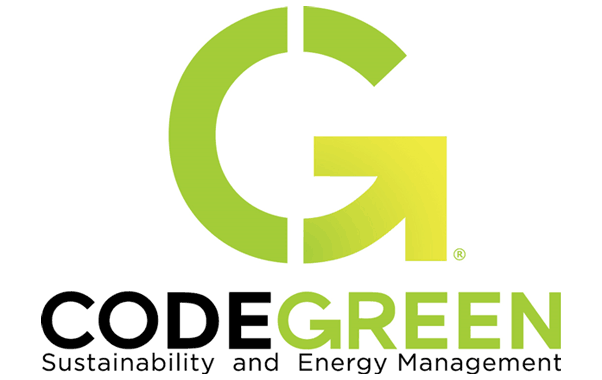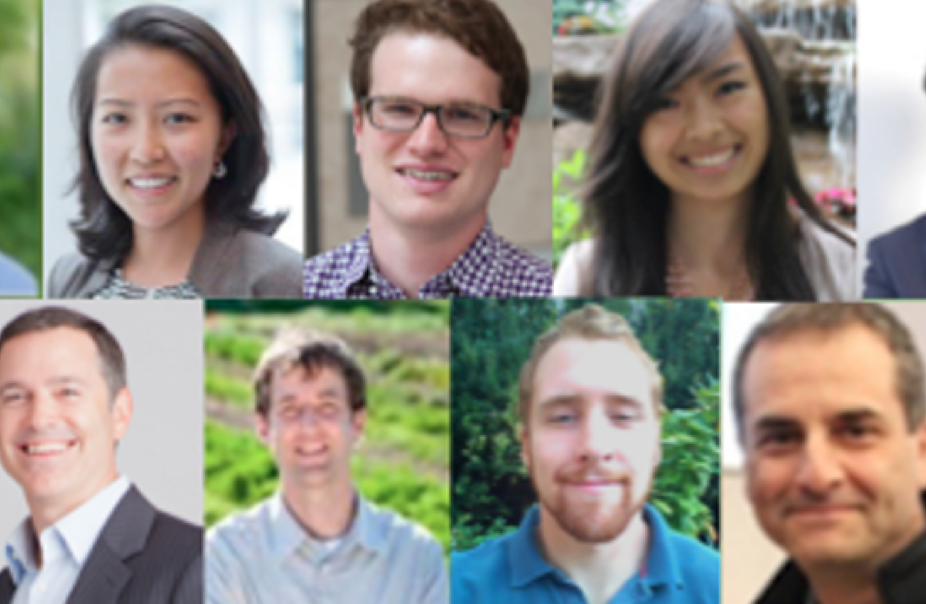Code Green Solutions


So why does Portland Mayor Charlie Hales believe that student leaders with #CleanEnergyU can now stand alongside the Pope and President Obama in order to deliver us a clean energy future?
Like these leaders, Mayor Hales believes that a clean energy future needs to be equitable and inclusive. Like Pope Francis and President Obama, he believes that tackling climate change is essential to protect the most vulnerable on the planet. So for him, if clean energy leadership arises collaboratively from all sectors and communities – from CEO’s to student leaders and from Presidents to community activists – it will give us the power to have a global impact.
Boston University student leader Lindsey Chew agrees:
“The magic of #CleanEnergyU is that it invites the collective curiosity and subsequent action of millions around the world, launching us all into the global sustainability discourse. It is both unique and necessary because it is inclusive, recognizing that all of our voices are valuable in leading to a clean energy future, whether we are a student or CEO.” – Lindsey Chew, BU intern and student leader.
Fine, you say… but how is this achieved? How can genuinely inclusive, cross-sector leadership really deliver a clean energy future?
Read on…
And join Mayor Charlie Hales in conversation on October 21 at noon ET / 9am PT during the #CleanEnergyU Tweetathon, where he’ll be joined by leaders from the City of Portland and Portland State University communities, to learn how they have collaborated across city, campus, non profit and business boundaries to transform their transportation systems to deliver a cleaner energy future.
And explore how to build the leadership pathways that can deliver this clean energy future in conversation with Amit Ronen, former Deputy Chief of Staff with Senator Cantwell and now Director of GW’s Solar Institute, in our #CleanEnergyU Deep Dive Dialogue at 3pm ET on Friday Oct 19 to champion your voices and blaze a trail like Portland to lead towards your #CleanEnergyU future!
—
CleanEnergyU: We are all leaders in our clean energy future
By Charlie Hales, Mayor of the City of Portland, Oregon
This summer, I had the privilege of joining 60 other mayors at the Pontifical Academy of Sciences in Vatican City, where Pope Francis called on us to consider climate change as a moral imperative for humanity.
Soon after, I was invited by the White House to President Obama’s Clean Power Plan announcement. Like the pope, President Obama was clear that climate action is a moral issue: “If you care about low-income, minority communities,” he said, “start protecting the air they breathe.”
These world leaders captured popular attention; their inspiring remarks made climate change and clean energy both a moral and political issue.
But just as powerful was a phone call I had with a young Portland “kayaktivist” after the protest in Portland against Shell drilling in the Arctic. Mia Reback is a recent graduate from Reed College in Portland, who organized student-led climate and social justice groups during her college years. In a Portland-to-D.C. phone conversation, she articulately expressed the fear for her generation’s future if our generation doesn’t act on climate change. She put a face on President Obama’s words: “We are the first generation to feel climate change, and the last that can do something about it.”
The reality is, climate change is really bad, but it’s not too late. If we’re aggressive about carbon reduction, we can make a difference. Like cities, college campuses and students have a role to play.
In the Portland metro area, 60 percent of carbon emissions come from fossil fuels used to heat and power homes, businesses and industry; building energy use is the greatest source of emissions. That’s why I launched the Mayor’s Business Climate Challenge, asking businesses to commit taking action to reduce emissions. Small steps — installing LED bulbs; providing incentives for transit or bicycle transportation — can have a big impact. The same is true for college campuses: food-scrap collection, onsite electric vehicle charging, and electricity from renewable sources are all relatively small changes to create significant impacts in protecting vulnerable people and a vulnerable planet.
In an effort to lead by example, Portland has also:
Through efforts over the last 25 years, the region has reduced carbon emissions 13 percent from 1990 levels, even as our population grew 26 percent and jobs grew by 12 percent. I believe we will continue to make progress through our new challenges.
Government’s role, my role, is ensuring climate action isn’t just about being green, but also about being equitable. World leaders have done us a favor by capturing popular attention. As the world faces the reality of climate change, I’ll work to ensure Portland continues to be a trailblazer, and we need the rest of the world to take up the challenge. Innovation and change happen at the local level; if enough cities and college campuses — that means #CleanEnergyU! — do the right thing, we’ll have a global impact.
—
Are you inspired to join Mayor Hales, the Pope, the President – and Mia Reback and Lindsey Chew and all the amazing young clean energy leaders you know – to lead towards a clean energy future?
Join Mayor Hales and other Portland leaders at the #CleanEnergyU tweetathon on Oct 21 at 12 ET 9 PT to explore how student, city, non profit and civic leaders can join together to deliver a radically cleaner future in our transportation systems!
Invite the young clean energy leaders you know to join the CleanEnergyU dialogue — with Deep Dive Dialogues running every day at 3 ET 12 PT now through Oct 23 and the Tweetathon on Oct 20/21 12-4pm ET – and join us a clean energy leaders yourselves by using the #CleanEnergyU hashtag to join the twitter dialogue online…